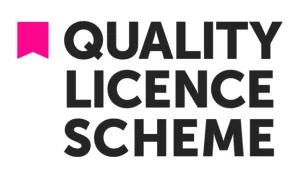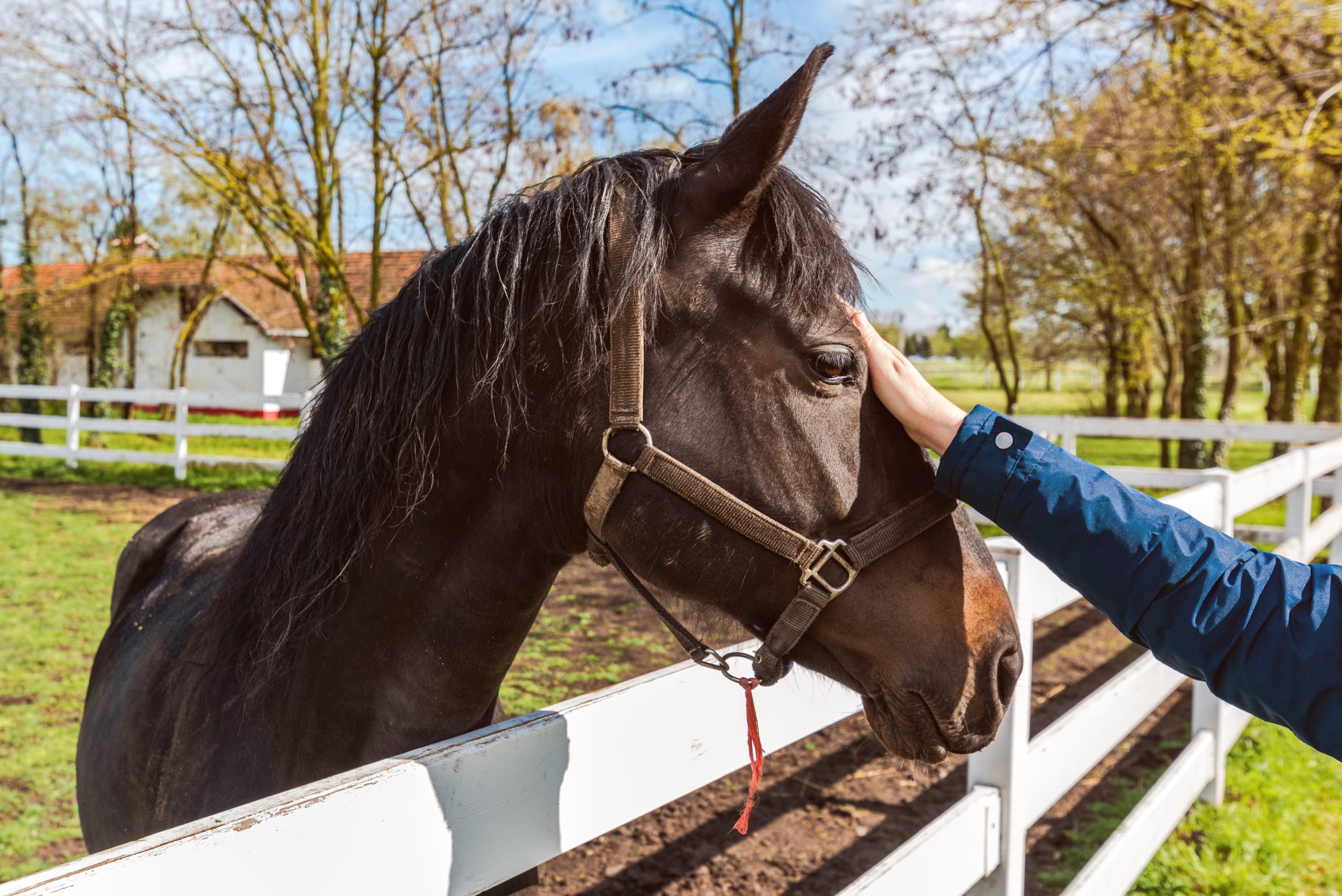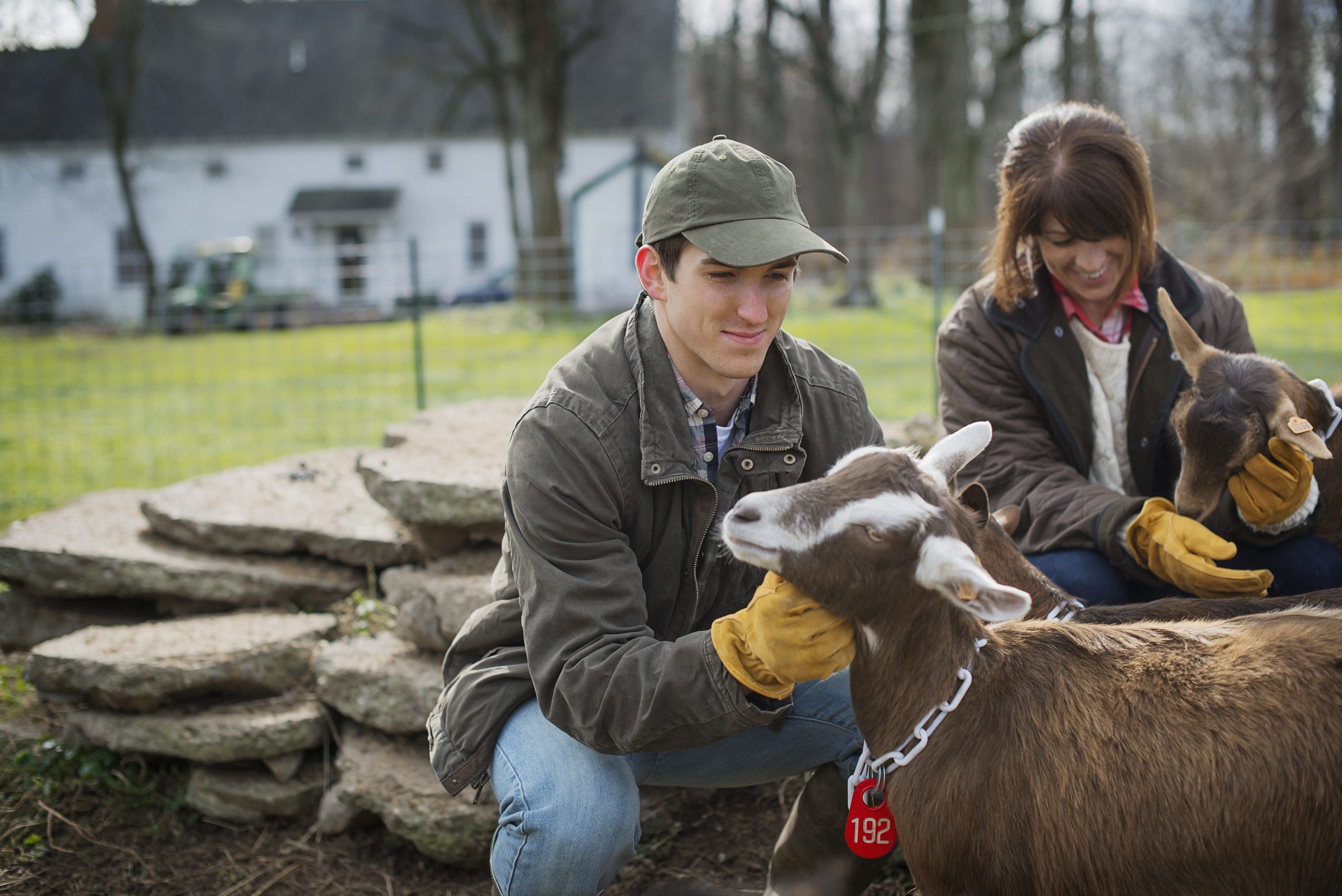Welcome to Open Learning College – Change your career, Increase your salary, and Improve your life.
 Course Overview
Course Overview 
Embark on a transformative learning journey with the UK’s most innovative home study provider, offering courses designed to unlock your true potential and facilitate the career change you desire. Access our distance learning courses directly from anywhere, anytime, and acquire industry-recognised Professional Qualifications essential for advancing in your career.
Specifically, explore the flexible and convenient Equine Psychology (Level 3) course, an ideal way to gain a diploma qualification. Whether you aim for further education, improved job prospects, or expanded knowledge, this comprehensive course allows you to prepare thoroughly for exams or careers through home study. Plus, it’s structured to be accessible and beneficial even if you have no prior knowledge in Equine Psychology.
The study of animal behaviour is now a recognised science. This Equine Psychology course is aimed at those with an interest in psychology and the way that horses behave, and how psychology can be used when handling, training and riding horses. In order to study equine psychology, the historic and general study of human psychology is first looked at, and built on to this is the specific issues that affect and impact upon horses. This will help improve the understanding and relationship that is built when living and working with horses.
The management of equines requires a basic grounding and emphasis on scientific aspects. People with an interest or wishing to work in equine life will also find this course very appealing as it covers everything needed to know about horses from what they eat, how this food is digested and waste removed, to their overarching behaviour. This Level 3 Diploma course is aimed at improving the knowledge base of owners, breeders/exhibitors and those involved with horses professionally.
 Course Key Topics
Course Key Topics
the Equine Psychology (Level 3) course is divided into 10 modules.
Module 1: An overview of psychology
The Equine Psychology course introduces the general principles of psychology in order to provide a foundation for the rest of the course. It covers the development of psychology as a science and how the mind, intelligence and cognition are defined in the different branches of human psychology. The different approaches to studying psychology, behaviour and some of the main psychological theories and well known scientists, and how these can be applied to animals and to horses in particular are studied. This module ends with a look at the history of the study of psychology, including the findings from the study of equines and other species, the arising trends and patterns.
Module 2: Evolution of the Horse and Behaviour
Horses are one of the domesticated animals used for work, pleasure as recreational activities, sport and transport in the last 10,000 years. This unit covers the evolution of the horse and the development of the different breeds, and how this is related to the behaviour of the horse. The basics of genetics and inheritance of characteristics, the theory of evolution, and natural and artificial selection are covered in the guise of selective breeding. The history of domestication of the horse and the development of the different breeds to form certain characteristics of horse are discussed. How breed differences can affect the temperament and behaviour of a horse is studied as this affects their role and performance, so the evolution of the horse and the different breeds and different evolutionary theories is important to be studied.
Module 3: Learning Theory
Although undoubtedly a lot of equine behaviour is instinctive, much of it is also learned, through life experiences or through deliberate training. This unit examines in detail how horses learn, are taught or trained and what impacts on this process. How psychologists have developed their theories of learning through experimentation is discussed. Environmental effects on learning, types of reinforcement such as the use of punishment and constraints on learning are discussed. How memory is important for learning to take place is explored.
Module 4: Sexual and Reproductive Behaviour
Following on from discussing genetics to breed horses, the behaviour of horses can be affected by the process of reproduction, in terms of sexual behaviour of mares and stallions, and the nurturing shown by a mare towards her foal. Animals especially the males often show courtship and mating rituals, dances or behaviours. The hormonal changes occurring at puberty and the hormones involved in reproduction and their effects on behaviour, for both mares and stallions is studied. The oestrus cycle of the mare and how behaviour is affected throughout the cycle is explored. Specific issues are investigated such as pregnancy and nursing a foal, the effects of castration (gelding) on behaviour and the normal behaviour of a new-born foal.
Module 5: The Psychology of the Young Horse
Horses are born needing some care from their mothers, but are much more independent than human young. The previous unit looked at the sexual and reproductive behaviour of the horse, and also the very early behaviour seen in a new-born foal. This unit carries on from there and covers the behaviour and psychology of the young horse as it develops, learns and grows. It starts by looking at the normal behaviour of a new-born foal, its innate behavioural development and the rejection of a foal by a mare, and the problems that can occur when hand rearing foals. The social ranking of a mare within a herd, under domesticated environments and how this can affect the behaviour of her foal is discussed. How a foal learns and makes associations, the procedure of weaning and separating foals from their clans, and the psychological impact of this can influence some of the early handling and training (breaking) that can be carried out with a young horse, so this must be addressed.
Module 6: Natural Equine Behaviour
Horses are instinctive animals that rely mainly on their senses as they need this to protect themselves from prey in the wild. A lot can be learned about the natural behaviour of horses by studying ethology, the observation of animals within their natural environment. By watching a herd of feral equines, which behaviours are natural ones can be determined, and so does not cover the behaviour that is a direct result of training by humans, or that may be a direct result of life in a domesticated environment. Identifying the types of behaviours that are innate, how the various systems (senses, nervous and the endocrine systems) affect, influences and control behaviour are explored. The social structure of a natural herd and the ways horses communicate with each other is studied.
Module 7: Equine Behaviour in the Managed Environment
The way horses behave in the wild may not be the same as within the human managed environment. The domestication of the horse and the different ways that horses are used for work, sport and recreation affects how they are kept. The way that artificial management are used to best enable and feeding techniques are in contrast to a natural lifestyle is discussed. The reasons why a natural lifestyle may not always be in the best interests of a domesticated horse are explored. This unit covers the tack and gadgets that may be used when riding or handling horses.
Module 8: The Causes of Problem Behaviour
When we adopt animals from the wild and domesticate them, we alter their behaviour. Although horses are very adaptable, the environment in which they live may sometimes influence their behaviour, and could be the cause of some problem behaviour. The first thing to learn is what is normal and abnormal in terms of behaviour. Some common behavioural problems and the possible reasons behind them are examined. The internal effects on behaviour, such as hormones, health or genetics, or the effects of pain are discussed. The possible effects of diet, the environment (such as confinement or social interaction) and other factors on behaviour are addressed. The learning element behind some problem behaviour and the ways that humans could influence the behaviour of horses through the giving of confusing signals is studied.
Module 9: Dealing with Problem Behaviour
In order to deal effectively with problems, we first need to understand why they are occurring. Without finding out the real cause, we are at best just masking the symptoms, and at worst we may be causing distress to the horse and impacting upon its welfare. Failing to address behavioural problems in horses could lead to an escalation of the problem, which could even potentially become dangerous. Some of the techniques that can be used to find out the causes of behaviour and the ways that problem behaviour can be dealt with are examined. It includes a different variety of methods that are currently employed, including traditional methods of preventing stereotypical behaviour. It should also be remembered that a solution that works for one horse may not be suitable in every case. Altering the managed environment to reduce behavioural problems and ways of dealing with common handling and riding problems are discussed, e.g. thought must be given to keeping horses stabled although they may need or prefer more freedom.
Module 10: Training Horses using Psychology
As with children, the way horses are managed and the expertise and knowledge of the owners influence how they learn. Different ways of training horses is compared with traditional methods e.g. punishment often seen to be negative with some of the alternative methods. The ways horses learn and knowledge of learning theory can improve training techniques. Techniques such as working on the lunge, and free schooling, natural horsemanship methods, and a look at how the natural behaviour of the horse can be used to obtain results is examined. The body language of the horse and how it can be used to assess the training being given as well as the rider’s attitude and how this can affect equine behaviour is discussed from a psychological perspective.
(Please click on the curriculum tab above to see a detailed view of each module)
Course Content
Equine Psychology (Level 3) – FREE Starter Pack
How to…. (a series of explainer videos)
Module 1 – An overview of psychology
Module 2 – Evolution of the Horse and Behaviour
Module 3 – Learning Theory
Module 4 – Sexual and Reproductive Behaviour
Module 5 – The Psychology of the Young Horse
Module 6 – Natural Equine Behaviour
Module 7 – Equine Behaviour in the Managed Environment
Module 8 – The Causes of Problem Behaviour
Module 9 – Dealing with Problem Behaviour
Module 10 – Training Horses using Psychology
Course Resources
Final Exam
College Announcements
🔍 Unlock the Equine Psychology Level 3 with £50 OFF the Course! 🐎💷
Ready to delve into the fascinating realm of equine psychology and understand your horse better?
For a limited time, seize the opportunity to enrol in our Equine Psychology Level 3 course with an exclusive £50 discount!
Use code EQUINE50 at checkout before the month concludes!
🌟 Why Choose Our Equine Psychology Level 3 Course
Presented by Open Learning College, this course is your pathway to exploring the intricacies of equine behaviour and psychology. Dive into comprehensive modules covering essential topics—from understanding horse communication to addressing behavioural issues. Gain practical insights into building a stronger bond with your equine companion.
💡 What Makes Our Course Shine
Expert Guidance: Benefit from experienced tutors providing support throughout your learning journey.
Real-World Skills: Acquire practical knowledge crucial for success in the field of equine psychology.
Flexible Learning: Tailor your studies to your schedule with 24/7 access to course materials.
Don't miss this chance to unlock the secrets of equine psychology at a discounted rate! Enrol now, use code EQUINE50* at checkout, and embark on your journey towards becoming a skilled equine psychologist. 💷🌿
*This discount code cannot be used in conjunction with any other offer.









 Get Social!
Get Social!











James Parker